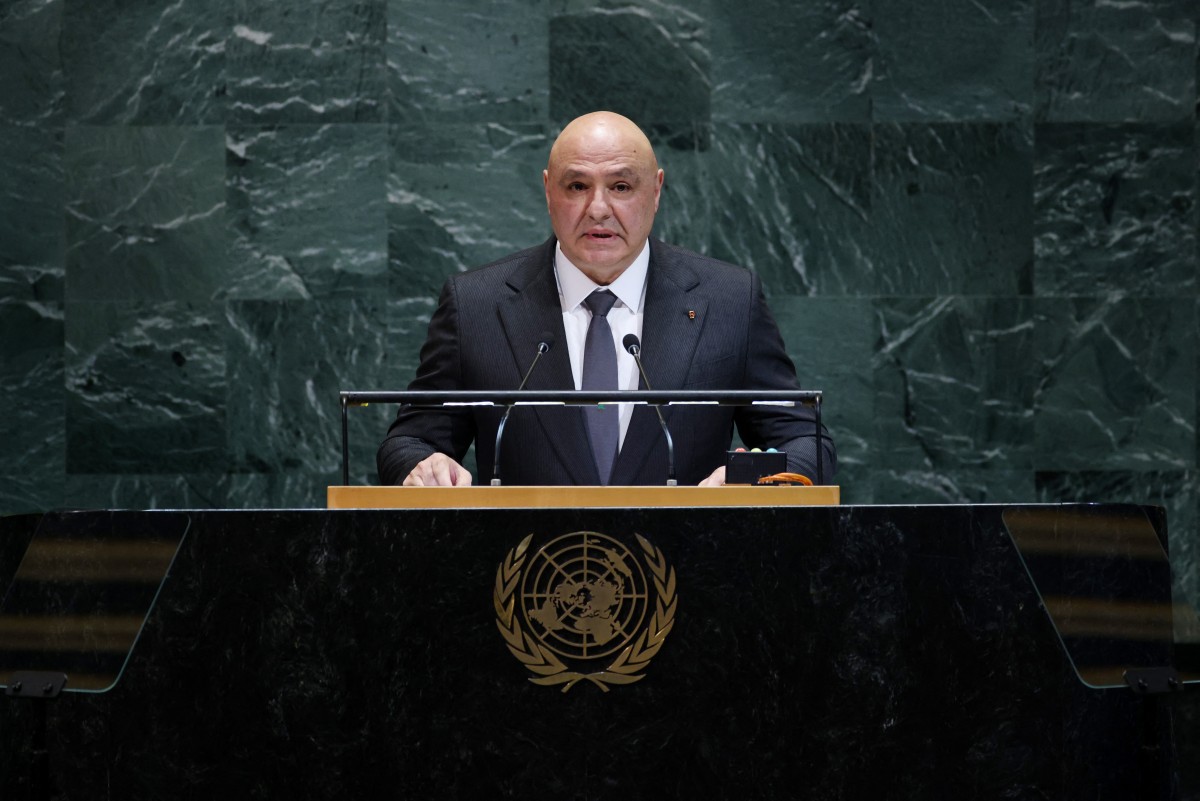It was hardly surprising that remarks by U.S. envoy to Syria and Lebanon Tom Barrack, on the eve of the UN General Assembly, sent shockwaves through Beirut and other capitals invested in the Arab–Israeli conflict. Barrack dismissed “peace in the Middle East” as nothing more than an illusion, downplayed the significance of some major powers recognizing a Palestinian state, and went further by accusing the Lebanese government of hesitating to take concrete steps toward disarming Hezbollah—stressing that Washington would not act on behalf of the Lebanese in this regard.
In a television interview, Barrack pointed to the failure of “27 ceasefires, not one of which succeeded,” adding that “responsibility lies with the Lebanese government.” He flatly rejected the notion of U.S. military intervention that would repeat the Marines’ 1958 landing in Beirut under President Dwight Eisenhower, when American troops stormed the Lebanese coast at the height of the clash between Nasserist supporters and advocates of the Baghdad Pact during President Camille Chamoun’s rule, in what became known as the “Eisenhower Doctrine.”
Beirut’s Official Response
The reaction was swift. Prime Minister Nawaf Salam described Barrack’s comments as “casting doubt on the seriousness of the government and the role of the army.” He reaffirmed his administration’s commitment to ensuring that weapons remain solely in the hands of the state, called on the international community to step up support for the Lebanese army, urged pressure on Israel to halt its aggressions, and reiterated Lebanon’s adherence to the 2002 Arab Peace Initiative as a realistic framework for a just and comprehensive settlement—based on land-for-peace and a two-state solution.
That was precisely the message Salam sought to underscore earlier this week, after the UN General Assembly overwhelmingly adopted a resolution outlining “concrete, time-bound, and irreversible steps” toward a two-state solution between Israel and the Palestinians—just ahead of the opening of the Assembly’s 80th session, which drew the world’s leaders to New York.
Memory of Charles Malek and the Message of Pluralism
President Joseph Aoun, delivering his first address on behalf of Lebanon from the UN podium, began by recalling Lebanon’s historic role in drafting the Universal Declaration of Human Rights 77 years ago through Charles Malik—“the Lebanese philosopher who, alongside leading figures of human rights thought, gifted humanity that immortal document, and who had the honor of presiding over this very Assembly between 1958 and 1959 as Lebanon’s representative.”
The president underscored that Lebanon still carries a message of freedom, pluralism, and coexistence despite its wounds. His invocation of Malik was not a symbolic gesture but a clear statement that Lebanon remains a “necessary existence” in a world fractured by division, offering itself as a unique constitutional balance between Christianity and Islam. He also revisited the UN General Assembly’s 2019 resolution to establish the “Human Academy for Encounter and Dialogue” on Lebanese soil, promising to revive it after it was sidelined by crises.
The Speech and The Reality
Yet, alongside these affirmations, a glaring contradiction persists. Lebanon presents itself at the UN as a beacon of dialogue and pluralism, while at home, illegal arms undermine its sovereignty. Barrack’s remarks cut to the heart of the dilemma: how can Lebanon fulfill its historic mission while held hostage by forces beyond state control?
Hezbollah, for its part, tries to balance an internal narrative of “turning a new page” with Saudi Arabia—as recently voiced by deputy leader Sheikh Naim Qassem—with its continued subordination to regional dynamics, particularly the Tehran–Riyadh axis. Past decades, however, have shown that such overtures are more often stalling tactics than serious reevaluations.
Israel After “Al-Aqsa Flood”: Harder Realities
Since Hamas’s October 7, 2023, attack, Israel has not been the same. Its national security has become an inviolable red line to be defended by any means necessary, rendering Lebanon’s reliance on the “resistance and deterrence” equation increasingly fragile. The country thus finds itself at the heart of a regional confrontation it cannot possibly withstand.
While Beirut’s officials continue to describe Lebanon as a “message”—and it was indeed one for two decades of its modern history (1949–1969)—the world today deals in realities, not ideals. Four decades of Palestinian, Syrian, Iranian, and jihadist arms—culminating in Hezbollah’s dominance—have crippled Lebanon’s ability to reclaim its civilizational role.
A Simple Yet Complex Equation
Lebanon’s recovery now rests on one simple but complex condition: no academy of dialogue, no message of pluralism, can stand without a strong state holding exclusive authority over war and peace. Unless this fundamental issue is resolved, Lebanon will remain suspended between the hopeful image it projects abroad and the grim reality it lives at home.
I write these closing lines with both pain and longing. Like most Lebanese, I want the world to hear the story of a country that once taught its people that difference is not hostility, and that pluralism is a political and social beauty. Yet, returning home, I find weary streets, wounded families, and a generation robbed of certainty.
I believe in Lebanon. But faith alone is not enough. Until we boldly choose one state with full sovereignty over its national decisions, the UN podium will remain a reminder of what we aspire to—never a substitute for what we must achieve here, on our own soil.
Please post your comments on:
[email protected]
 Politics
Politics







